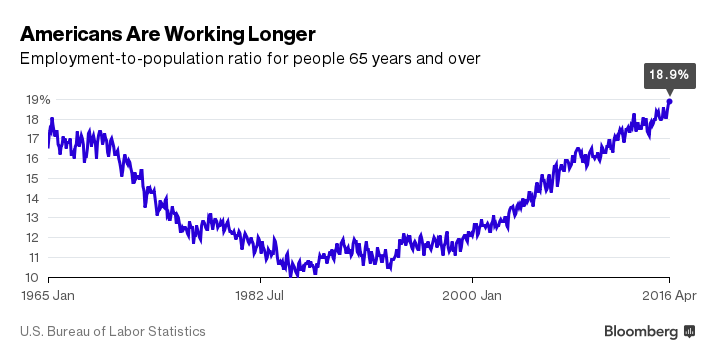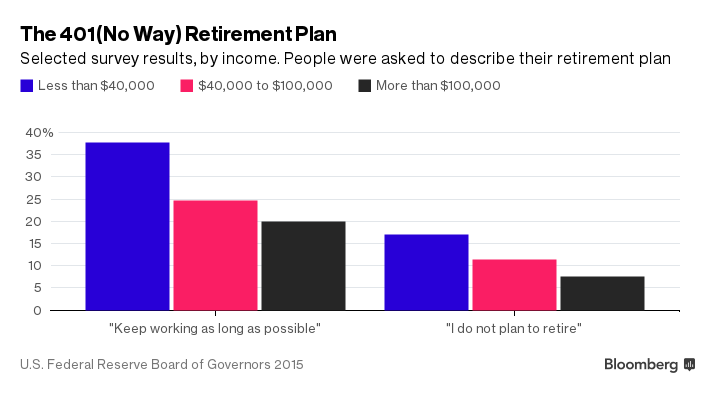Almost 20 percent of Americans 65 and older are now working, according to the latest data from the U.S. Bureau of Labor Statistics. That’s the most older people with a job since the early 1960s, before the U.S. enacted Medicare.
Because of the huge baby boom generation that is just now hitting retirement age, the U.S. has the largest number of older workers ever.
When asked to describe their plans for retirement, 27 percent of Americans said they will “keep working as long as possible,” a 2015 Federal Reserve study found. Another 12 percent said they don’t plan to retire at all.
Why are more people putting off retirement?

They need the money
Three in five retirees surveyed by the Transamerica Center for Retirement Studies said making money or earning benefits was at least one reason they had retired later than they planned to. Almost half said financial problems were their main reason for working past 65.
The financial crisis, and the tech bust before it, devastated many baby boomers' retirement savings. That's if they had any to begin with. Today, 60 percent of U.S. households have no money in a 401(k) or similar retirement account, and the benefits of 401(k)s are skewed toward the wealthiest Americans, a recent report by the Government Accountability Office found.

The waning of traditional, defined-benefit pensions could also be delaying retirement, even for wealthier Americans. Instead of getting a monthly check, many retirees end up with a pot of 401(k) assets they’re not sure how they should be spending. The ups and downs of the market can heighten their anxiety and keep them going into the office.
They like their jobs
Thirty-six percent of respondents told Transamerica they had worked past 65 mainly because they enjoy their jobs or “want to stay involved.”
Education probably comes into play here. People with college and graduate degrees tend to work later than those with less schooling, according to a 2013 study by the Center for Retirement Research at Boston College. And since 1985, the share of older Americans with college degrees has tripled, to about a third of 60- to 74-year-olds.
Employers want (some) older workers to stick around
With the U.S. unemployment rate at 5 percent, the lowest since 2008, employers have a greater incentive to keep older workers happy. They might not be able to replace them.








